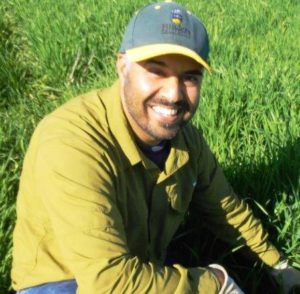
A United Nations initiative to share scientific knowledge on agriculture and the environment will see Dr Harpinder Sandhu, from Flinders’ School of the Environment, speak in Rome this week.
Dr Sandhu is lead investigator of an international, independent Intergovernmental Platform on Biodiversity and Ecosystem Services (IPBES) study into pollination and food production.
As lead author, he is working with the Australian Department of Environment and more than 100 other researchers around the world, to compile a seminal report by early 2016. The report will cover changes in animal pollination that underpins global food production – and the key role pollinators play in gene flows and restoration of ecosystems.
“Biodiversity and the natural assets, or ecosystem services, of farmlands around the world are being studied by a number of research teams around the world,” Dr Harpinder says.
“The pollination report will be the first of many different reports to guide future trends in agricultural production.”
Dr Harpinder said the IPBES was established by the UN in 2012 to conduct a global assessment of biodiversity and ecosystem services – as an agro-ecology equivalent to the more widely recognised Intergovernmental Panel on Climate Change.
The IPBES panel on pollinators, pollination and food production selected Dr Sandhu as a lead author due to his leading research in ecosystem services area over the past decade.
As a part of his investigation, a local study was conducted in the Northern and Yorke agricultural region in South Australia that examined the contribution of ecosystem services.
It concluded that these natural assets are of great significance and high economic value to local agriculture – and could improve yield at a time when productivity gains can be slow and costly.
“For example, contribution of pollinators to canola crop in this region accounts for up to $15 million annually,” he says.
“In the absence of pollinators, farmers will lose production value.
“There is a real need to create biodiversity islands in agricultural landscapes to attract wild and managed pollinators which are of high economic value to farming,” Dr Sandhu says.

